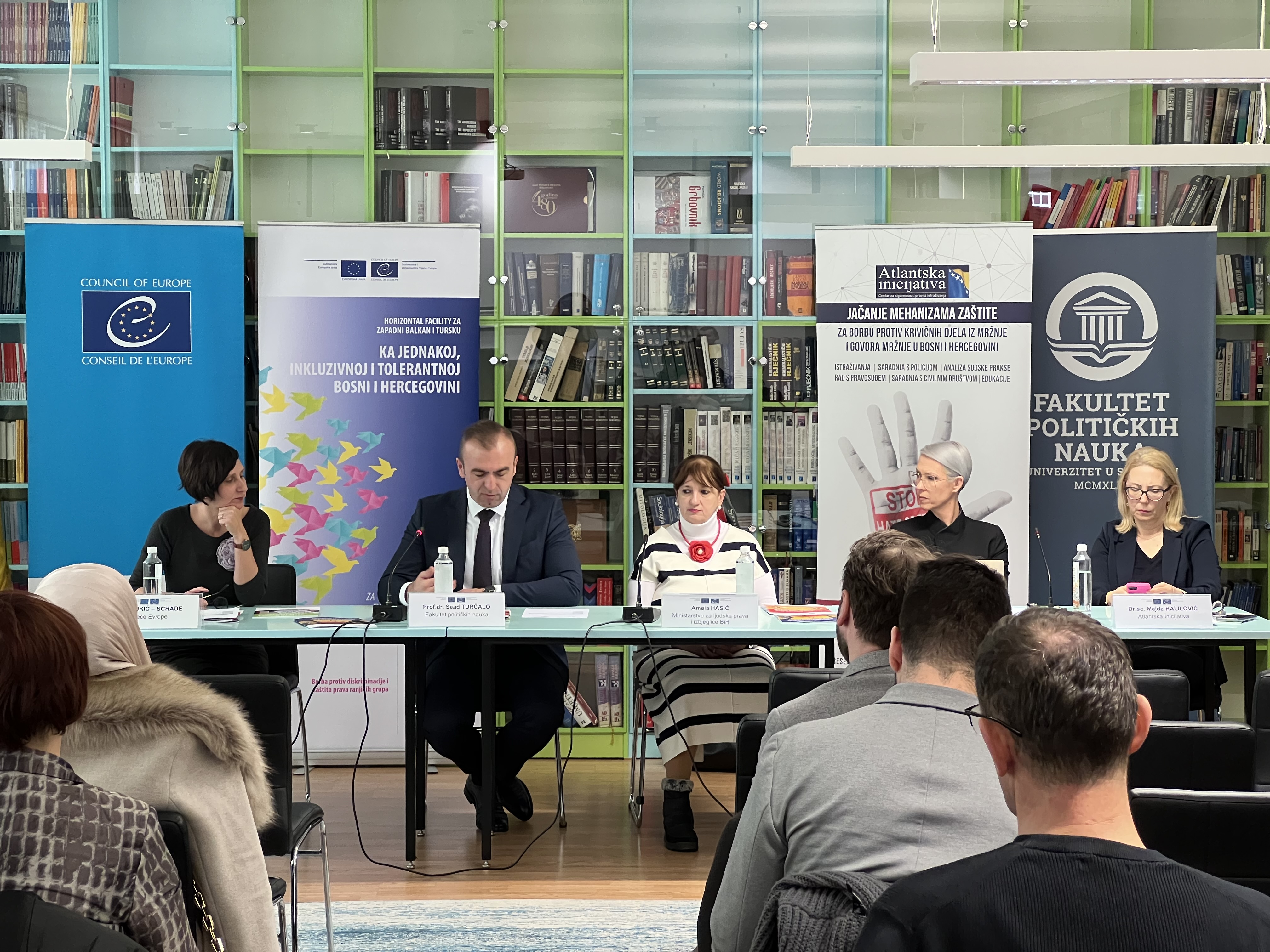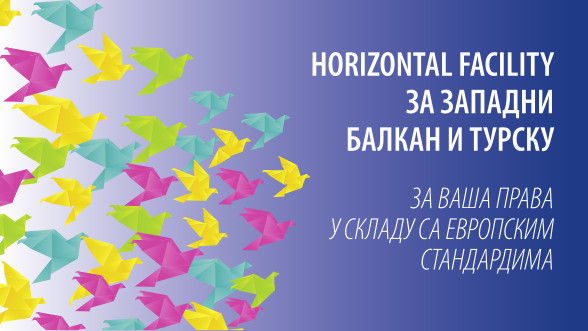Two publications on the latest research into the nature and impact of hate speech in Bosnia and Herzegovina, developed under the European Union and Council of Europe’s joint programme “Horizontal Facility for the Western Balkans and Türkiye,” were presented today in Sarajevo.
The comprehensive research was done under the auspices of the BiH Ministry of Human Rights and Refugees, in partnership with the Atlantic Initiative and with financial support from the National Endowment for Democracy (NED). The two publications offer practical guidance for policymakers, law enforcement, sociologists, psychologists, and civil society organisations aiming to foster more inclusive and resilient communities.
The first publication, Motivation and typology of incitement to Hatred offenders, explores the characteristics, motivations, and behaviours of persons who incite hatred using theoretical perspectives as well as cases in Bosnia and Herzegovina. This provides a better understanding of those negative social phenomena, towards improving prevention strategies, investigations, prosecution, and psycho-social support.
The second publication, Words that Hurt: Consequences of Hate Speech in Bosnia and Herzegovina, highlights the wide-reaching consequences of hate speech on the victims. It draws focus on critical issues such as the devastating psychological, social, and health consequences of hate speech on vulnerable groups, indicating the urgent need for prevention and action.
Research on both topics applied quantitative and qualitative approach, taking a deeper insight into the psycho-social circumstances from the point of view of the victims, as well as of the perpetrators.
Opening today’s event, Amela Hasić of the Ministry of Human Rights and Refugees of Bosnia and Herzegovina said that this institution is firmly committed to promoting freedom of speech as a democratic right guaranteed by the European Convention on Human Rights and Fundamental Freedoms. “At the same time, it is dedicated to preventing hate speech and all forms of intolerance toward individuals or groups based on their characteristics,” Hasić noted, adding that the Ministry will continue its efforts to foster diversity, recognising it as an invaluable asset of Bosnia and Herzegovina - a multiethnic, multireligious, and multicultural country on its path to EU membership.
Majda Halilović of the Atlantic Initiative said that hate speech harms individuals, divides communities, and weakens the very fabric of society. “It is our collective duty to prevent its spread and stand in unwavering support of those exposed to its devastating effects,” she concluded.
The development and presentation of the two publications was supported as part of the action “Towards an equal, inclusive, and tolerant Bosnia and Herzegovina,” funded under the joint European Union and Council of Europe programme “Horizontal Facility for the Western Balkans and Türkiye,” as well as the Council of Europe project “Combating discrimination, hatred, and racism in Bosnia and Herzegovina” funded through voluntary contributions.



